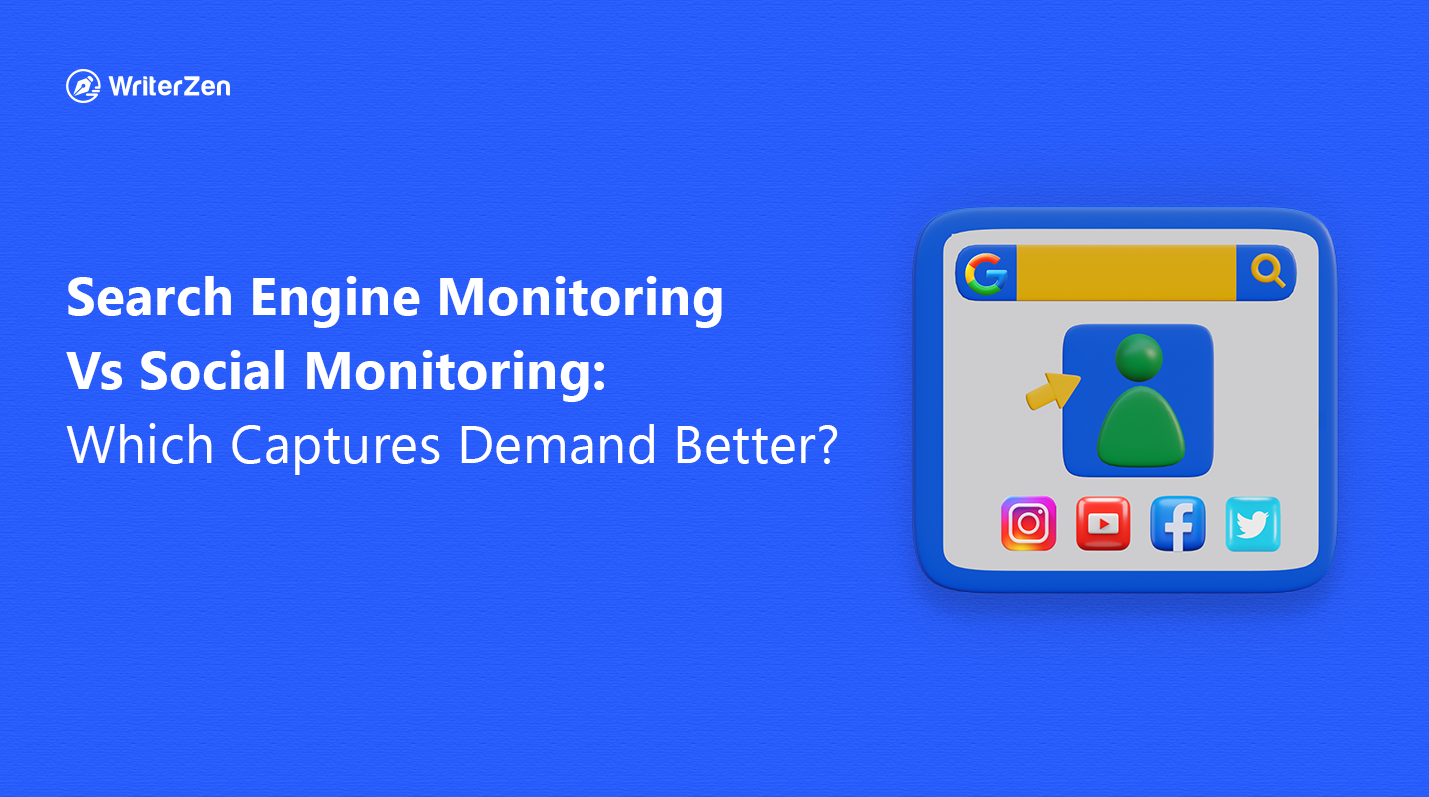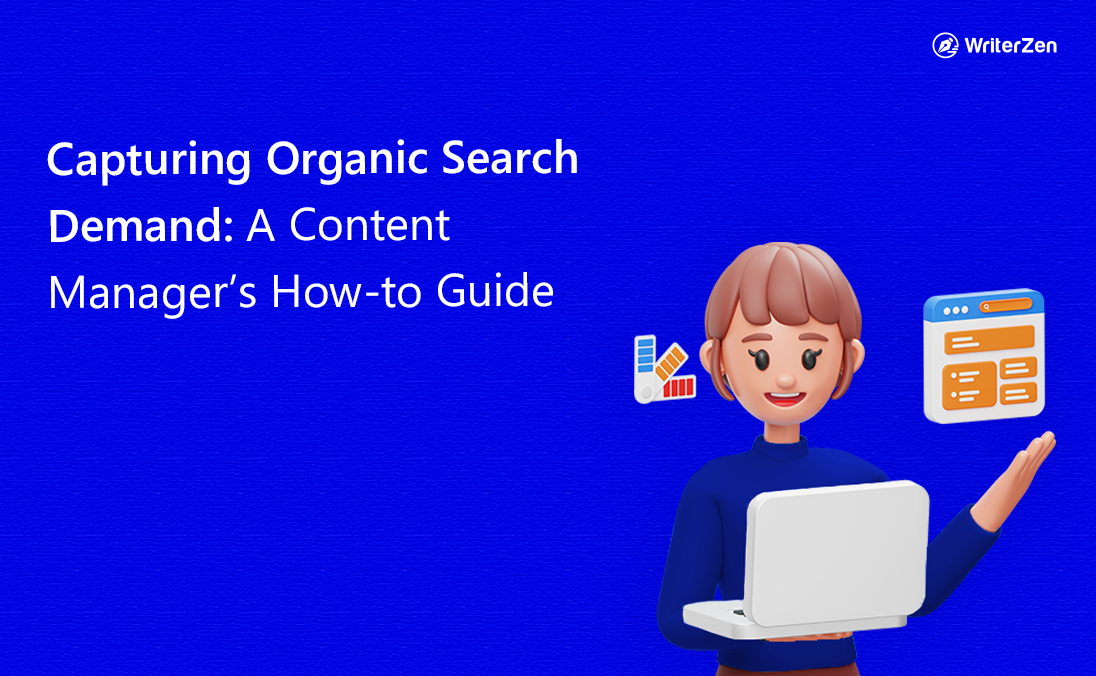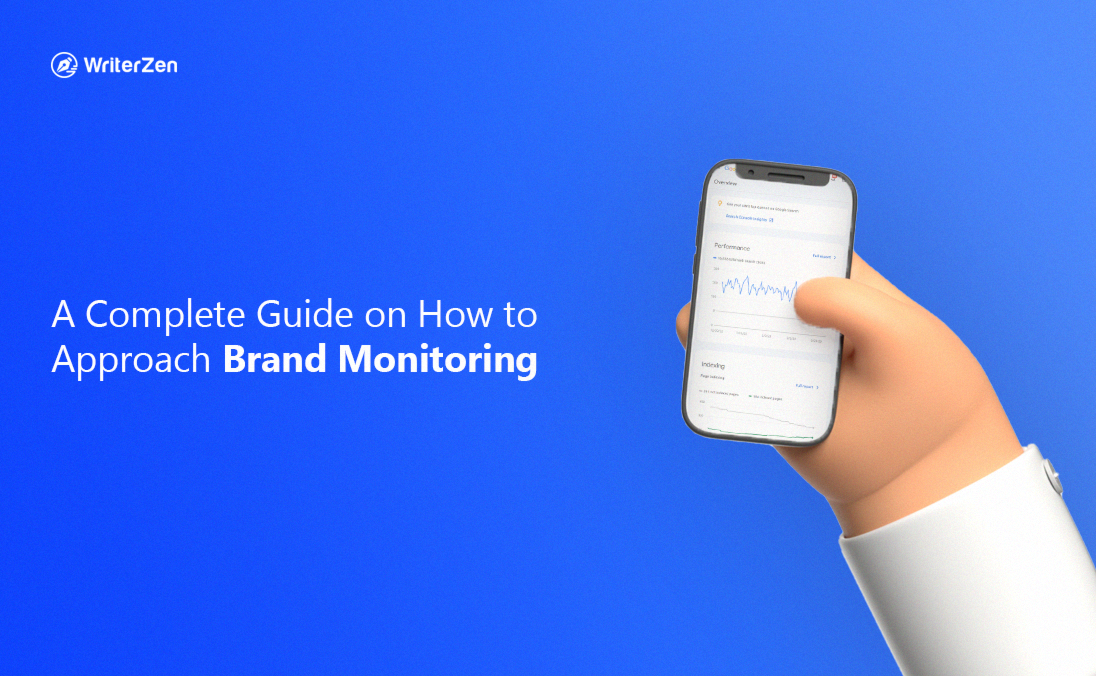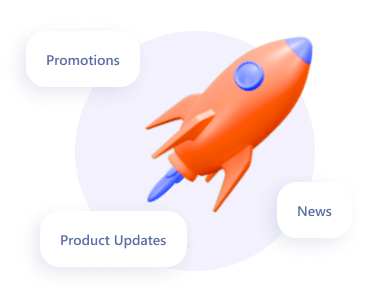In 1952, Polish Agent Romeike started an idea of “Press Clipping agency” selling "clippings" of artists and entertainers mentioned in articles, after noticing their visits to his shop.
This was the origin of media or brand monitoring, which is still the same principle today but with different media sources. Currently, experts and marketers monitor social media platforms for brand mentions with over 4.26 billion users. However, this is not enough as media monitoring should extend beyond just social media, because…..
Social Monitoring Is Limited
Social media is just one out of many channels your customers are on. It’s not the only channel they’ll mention your product. So expending all your resources on monitoring your company’s social mentions is unwise. You’ll be missing a huge part of the pie.
Sandra Chung, Content Marketing Consultant wrote,
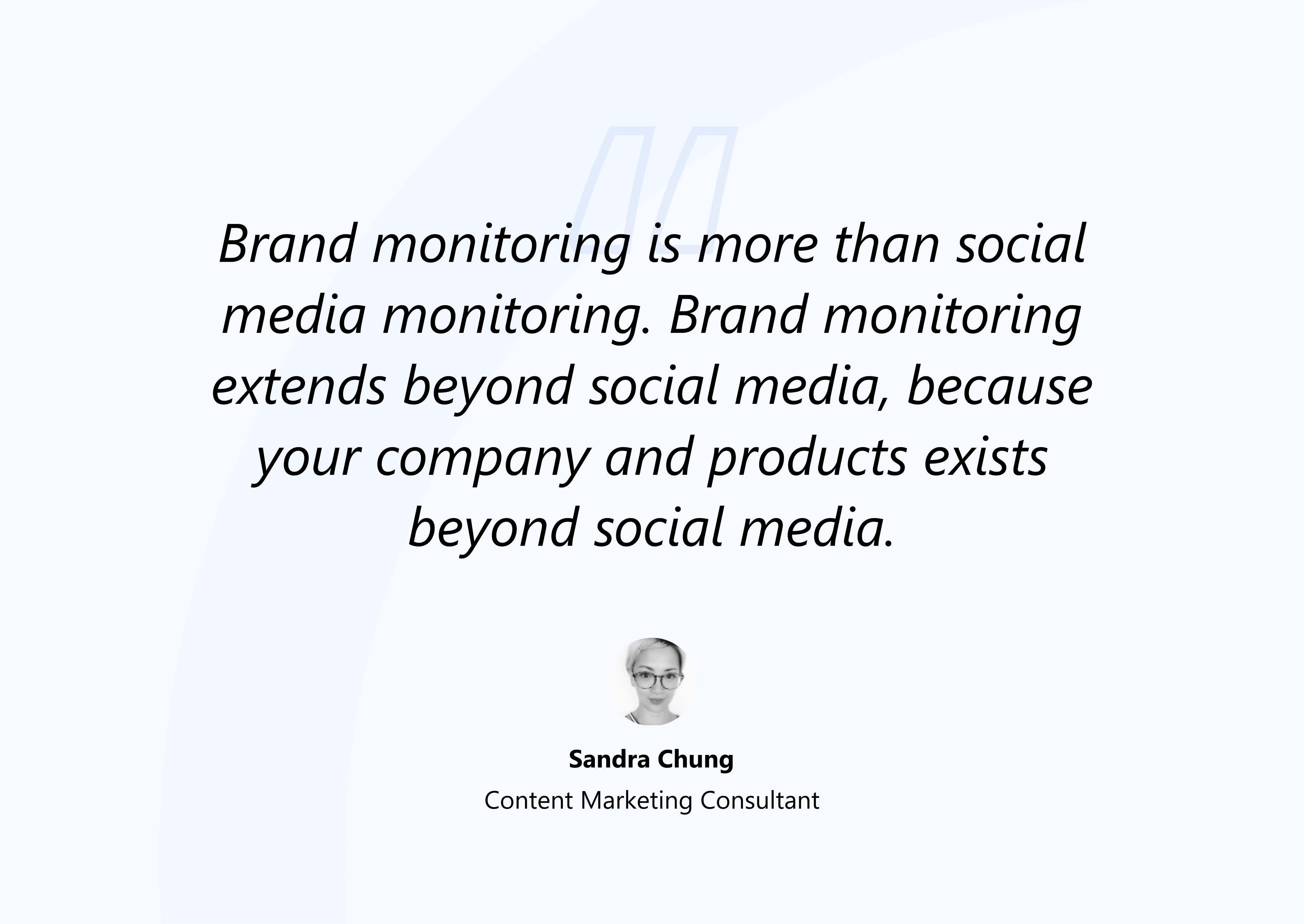
Brand monitoring should involve tracking all channels like traditional media, social media, audio/video, and search engines, not just social media.
Yes, social helps in keeping your finger on the pulse of your brand, but it isn’t the only monitoring tool.
In this piece, we’ll focus on one of the other major channels: Search Engines. You’ll see how to track and optimize it to capture demand.
Why Search Engine Monitoring is Important
Don’t let anyone tell you differently.
People are still searching for and purchasing products on search engines. Stats show:
-
Search drives over 50% of most industries’ web traffic, making it the largest online traffic source.
-
Search engines are the second-highest source of purchases (30%) after marketplaces, according to Statista.
-
And of all the search engines, Google is the giant, owning 83.84% of the market share.
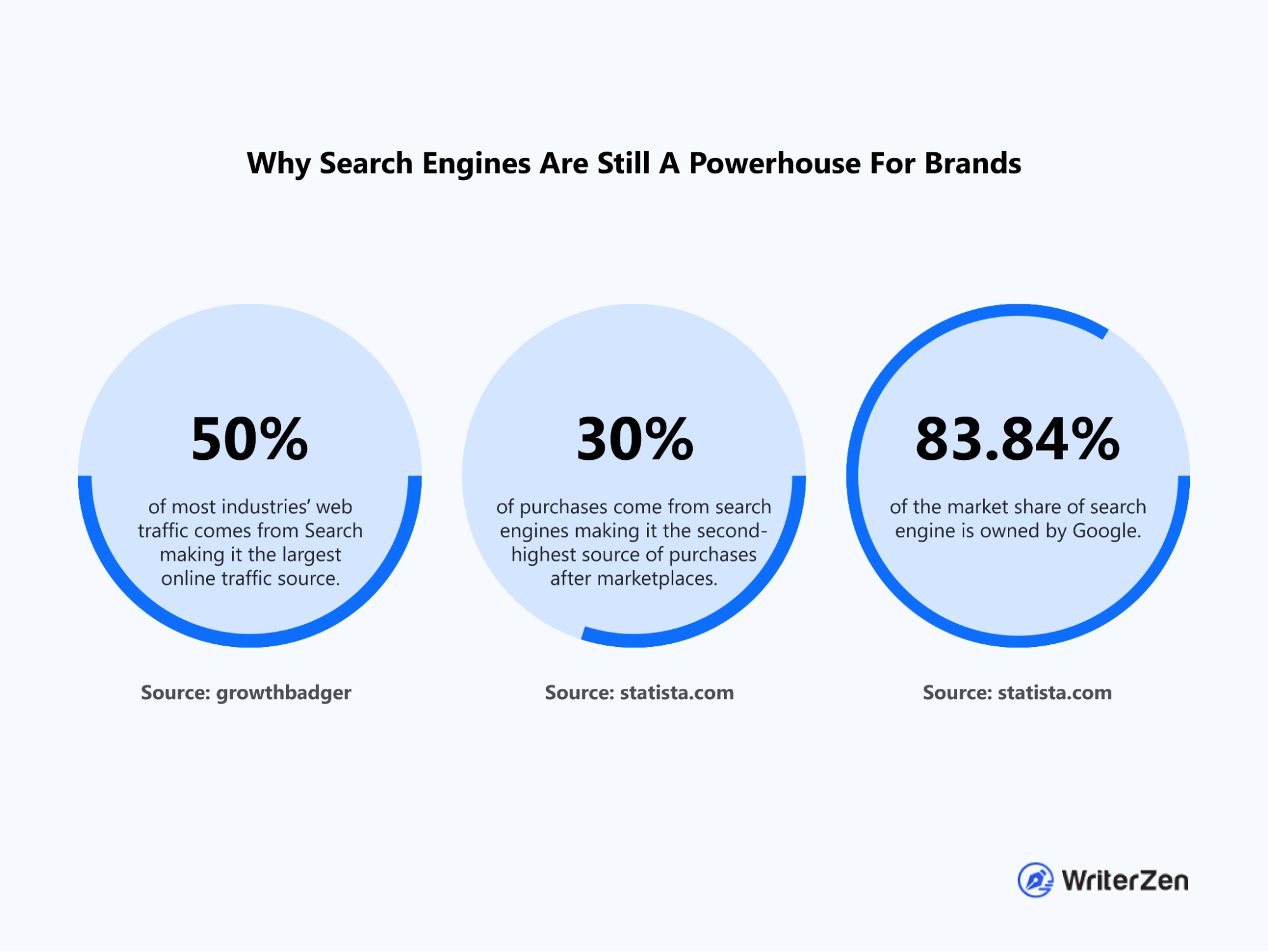
These stats prove the need to:
-
Pay attention to search engines as it is a chance to increase revenue.
-
Focus on Google because it is the dominant search engine and would give you more returns than any other.
Now the question: What Metrics Should You Track on Search Engines?
There are many SEO-focused metrics you could track, but here are 5 relevant ones:
Organic Traffic
It’s the number of people visiting your site and is an important search engine metric because if no one is visiting your site, there’s no way to capture demand. You can find this data in the performance tab of your Google Search Console.
Traffic Conversions
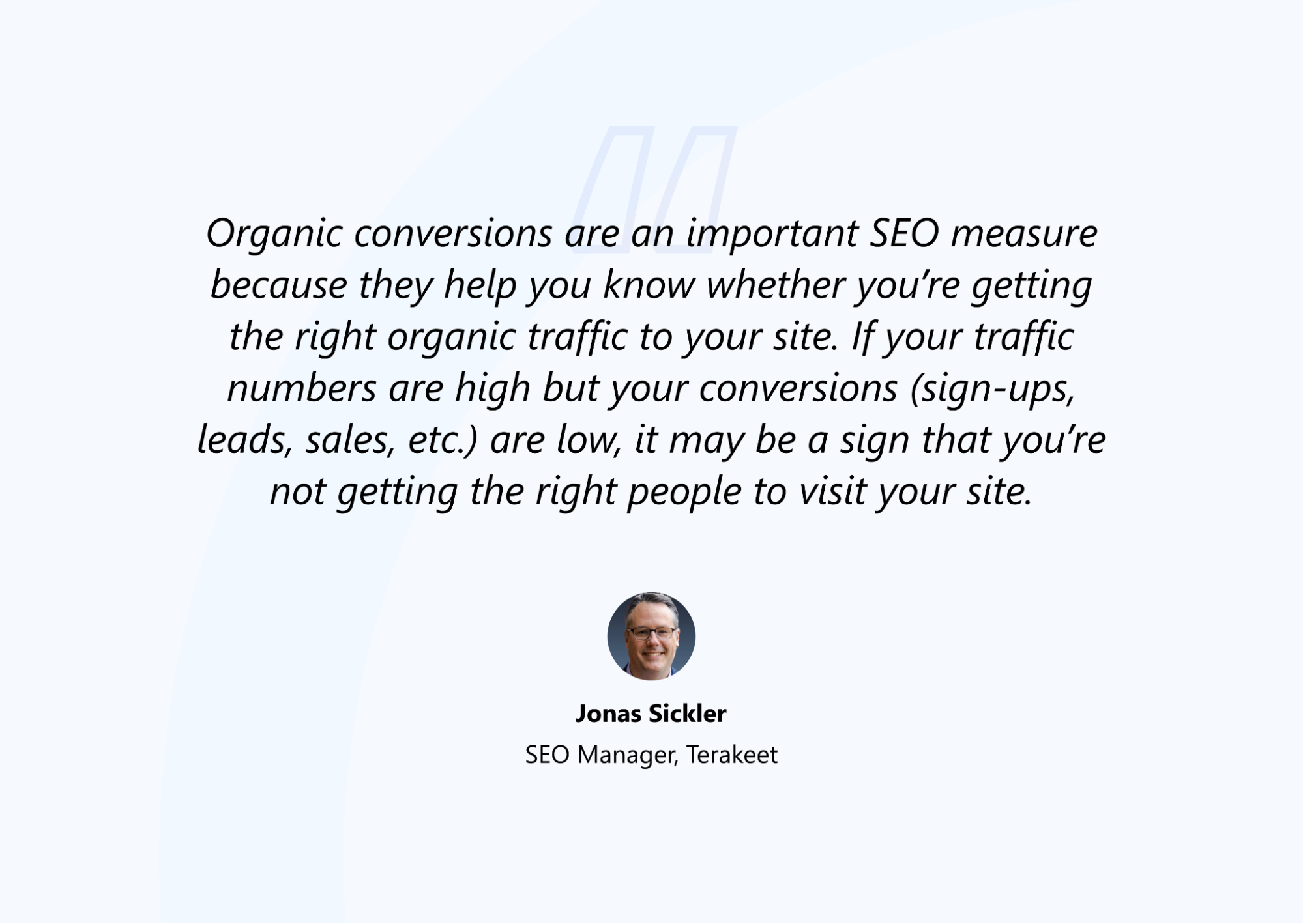
Those are the words of Jonas Sickler, SEO Manager at Terakeet, in this piece.
And he’s right.
Tracking the rate of conversions and comparing it with your organic traffic lets you know if you need to change something or double down on your current SEO content marketing strategy. Google Analytics provides your site’s conversion information.
Click-Through-Rate (CTR)
This is the percentage of searchers who click on your site from the Search Engine Results Pages (SERP). Studying your CTR trend helps you determine your brand’s performance on Google search engine.
Backlinks & Referring Domains
Another SEO metric worth checking is your site’s backlink number and referring domains. Backlinks are the total links while referring domains are the number of different websites that link to you. The higher & diversified the number of links and referring domains you get, the better.
Keywords
Finally, we have Keywords.
Keyword tracking comes in two dimensions: rankings and opportunities.
Both are very important.
You need to monitor your keyword ranks (both branded & unbranded) to determine your current organic market share. It’s like what Winston Burton, SVP of SEO, Acronym said:
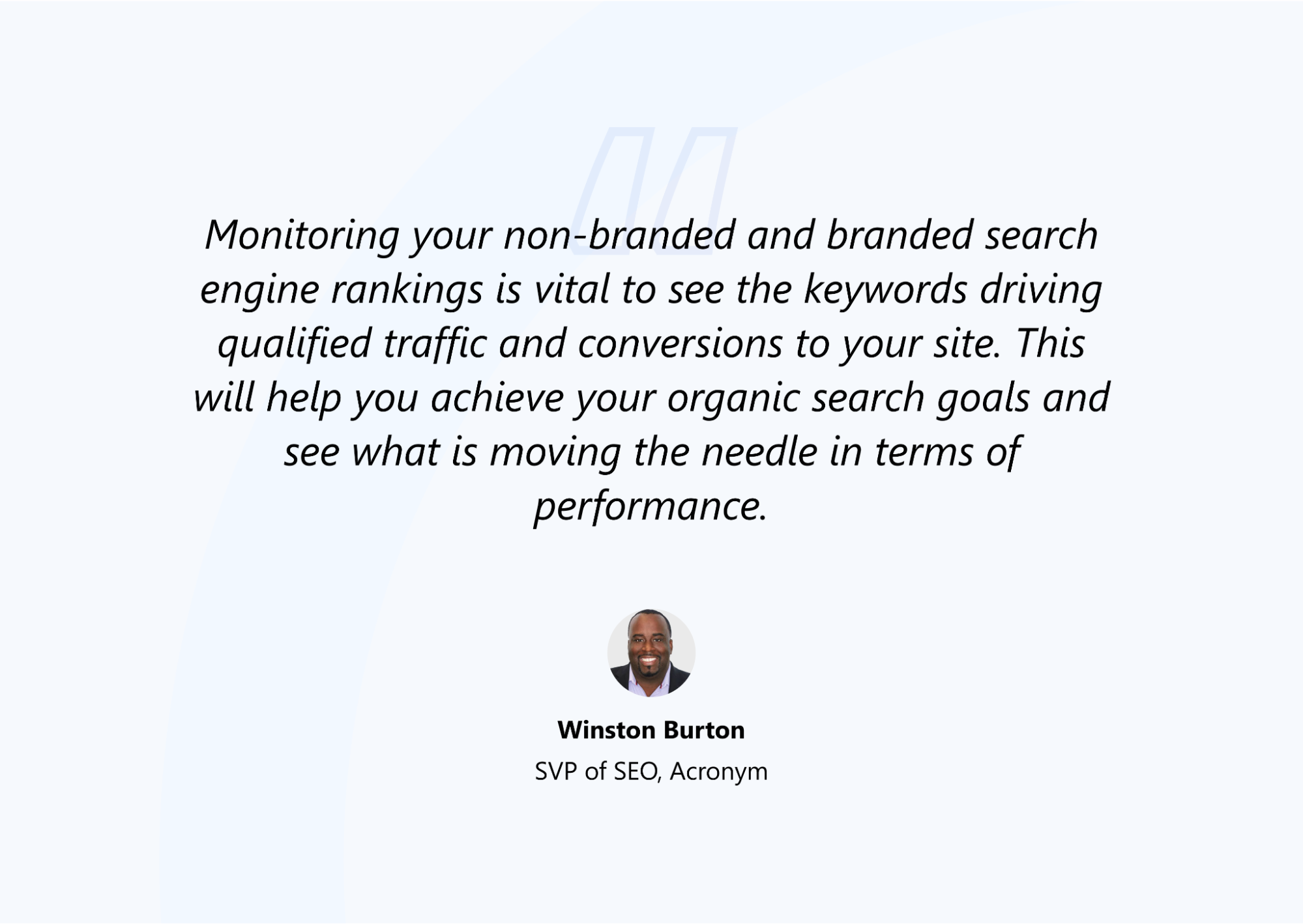
You also need to regularly do keyword research to detect opportunities for your SEO strategy. Usually, this keyword research can be a labor-intensive and time-consuming process. But thanks to WriterZen, an SEO monitoring tool, it’s now easier.
See what a CEO said: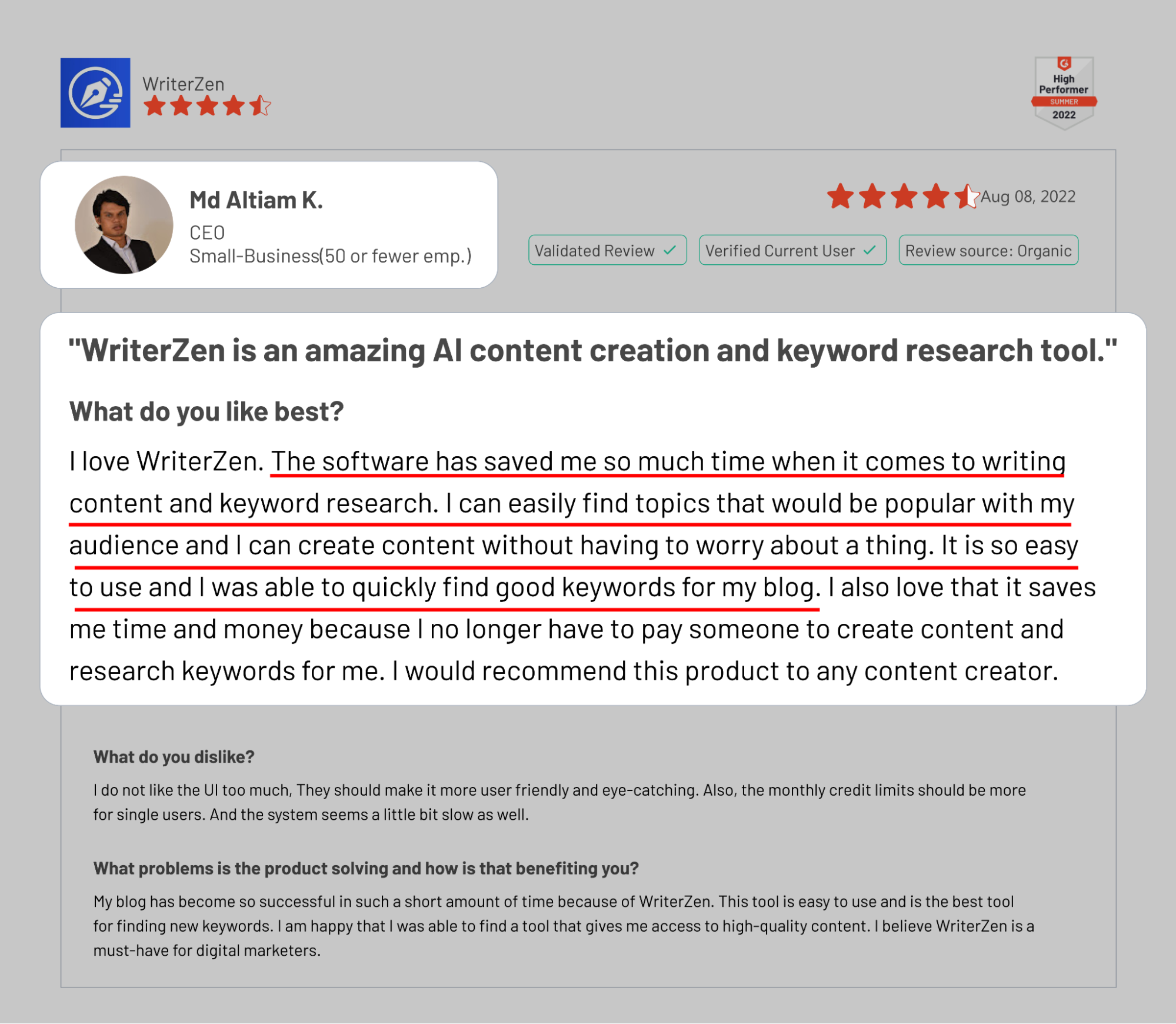
Now how can you do this research?
First, switch over to the ‘Keyword Explorer’ tool and enter a seed keyword:
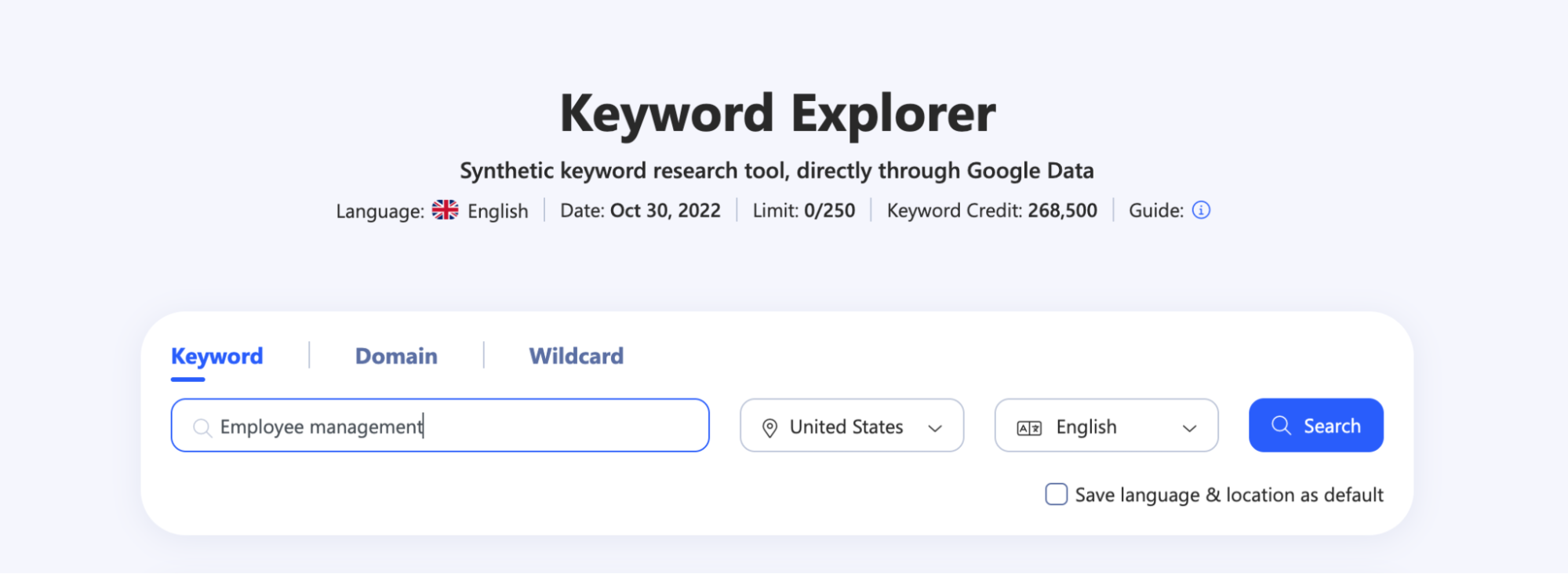
Right away, you can see basic data about that keyword like Search volume, Keyword difficulty, and Cost Per Click (CPC) on the left-hand side:
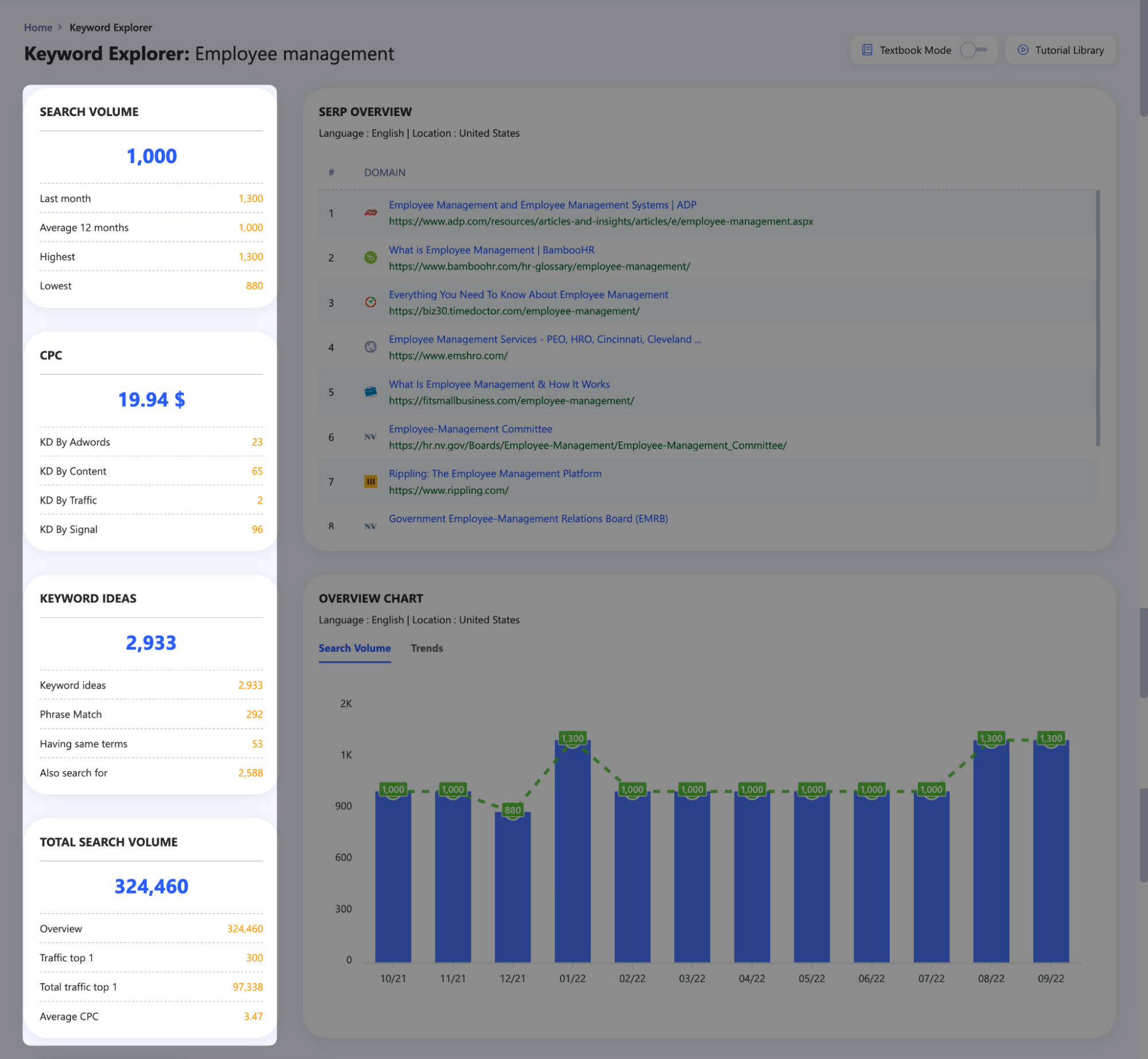
You’ll also see details about the SERP overview and volume trends.
Next, scroll down, and you’ll find tons of keyword data. You can filter by volume, CPC, or rearrange by order of trending keywords:
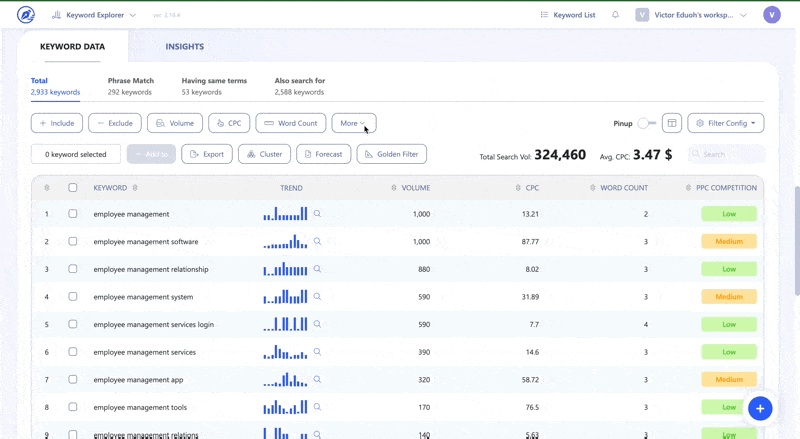
WriterZen takes it one step further.
The keywords are grouped to provide better insights:
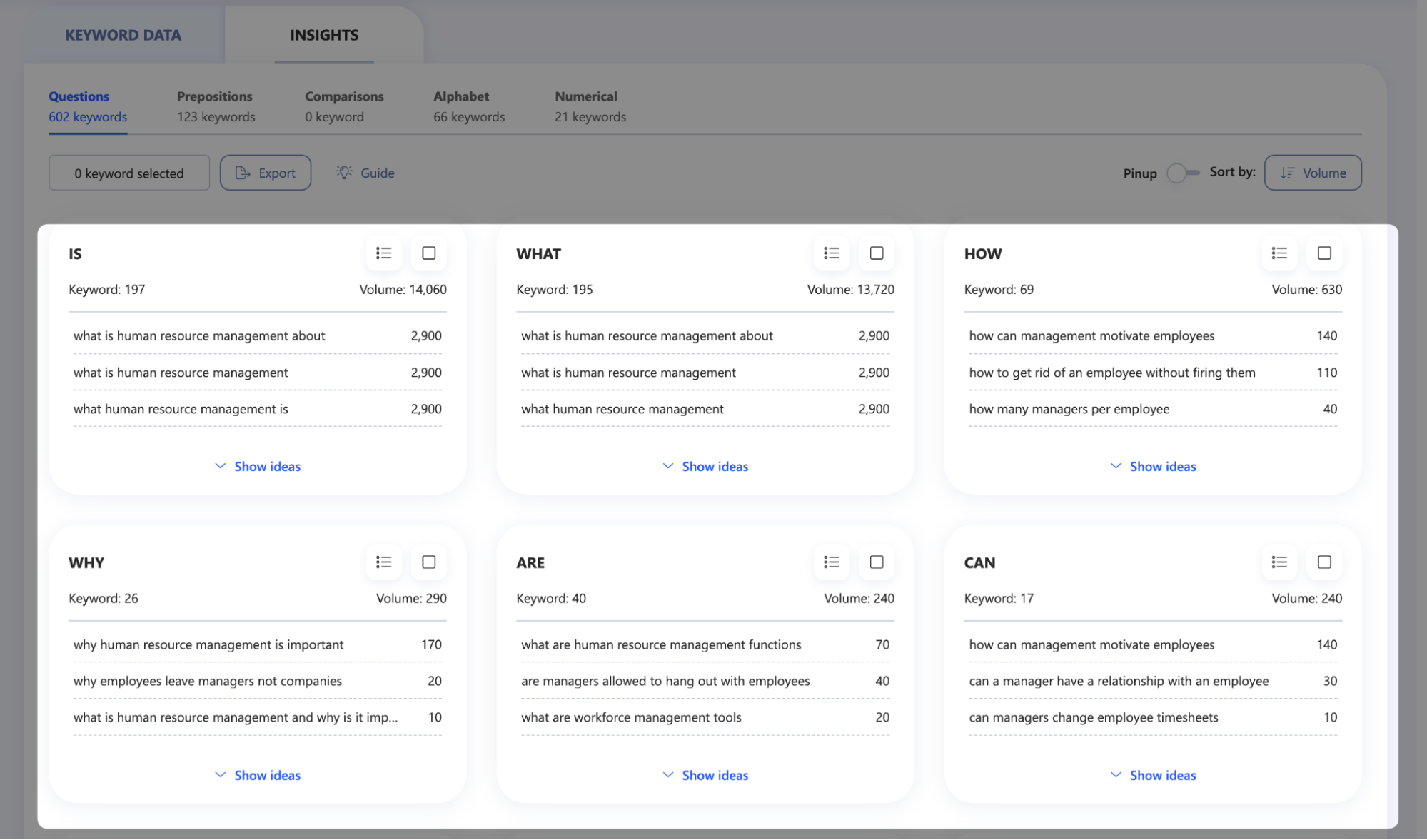
With all the information provided, you can monitor and discover opportunities for your brand to rank.
As you are aware, the whole aim of brand monitoring is sales. So let’s look at how to capture demand from search engine monitoring.
How to Monitor (and Capture) Brand Demand on Google
WriterZen exists to help brands identify, measure, and capture their untapped search engine demand in the following ways.
Identification
You can identify the right needs made by your target audiences with the Topic Discovery and Keyword Explorer tools.
Topic Discovery can help you uncover your audience’s interests and problems, which will inform the right content marketing strategy for your company. With the content ideas from this tool, you won’t be operating blindly. You’ll know where your audience needs help, and step in to help.
To get this data, all you need to do is first enter a seed phrase or keyword:

Filter by ‘closely’ relevancy: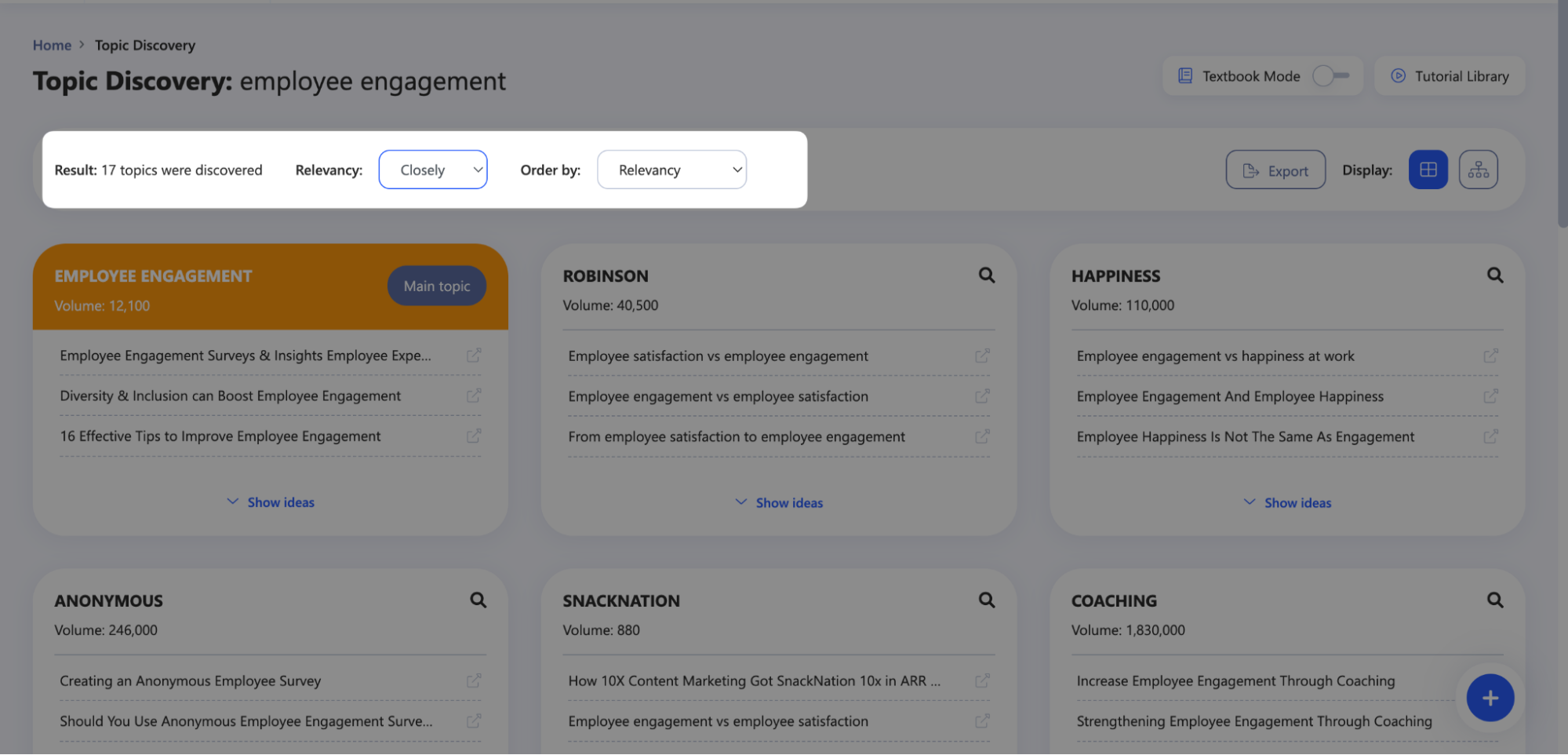
And surf through the topics generated:
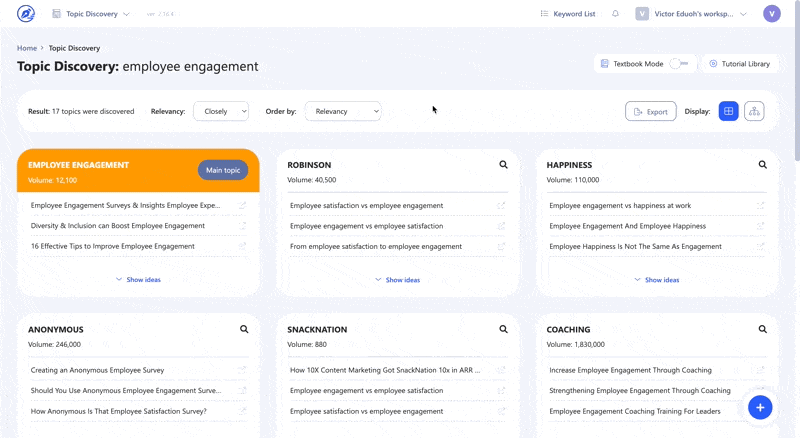
With Keyword Explorer, you can see and prioritize keywords with the highest business value to provide a decent Return on Investment (ROI).
Monitoring
WriterZen’s Wildcard Search option can help you monitor search and stay on top of the ever-changing demands of humans. It will help you to discover hidden and new keywords in real-time which you can target to capture demand. This option is found in the Keyword Explorer.
To use it, include an asterisk (*) in your seed phrase:
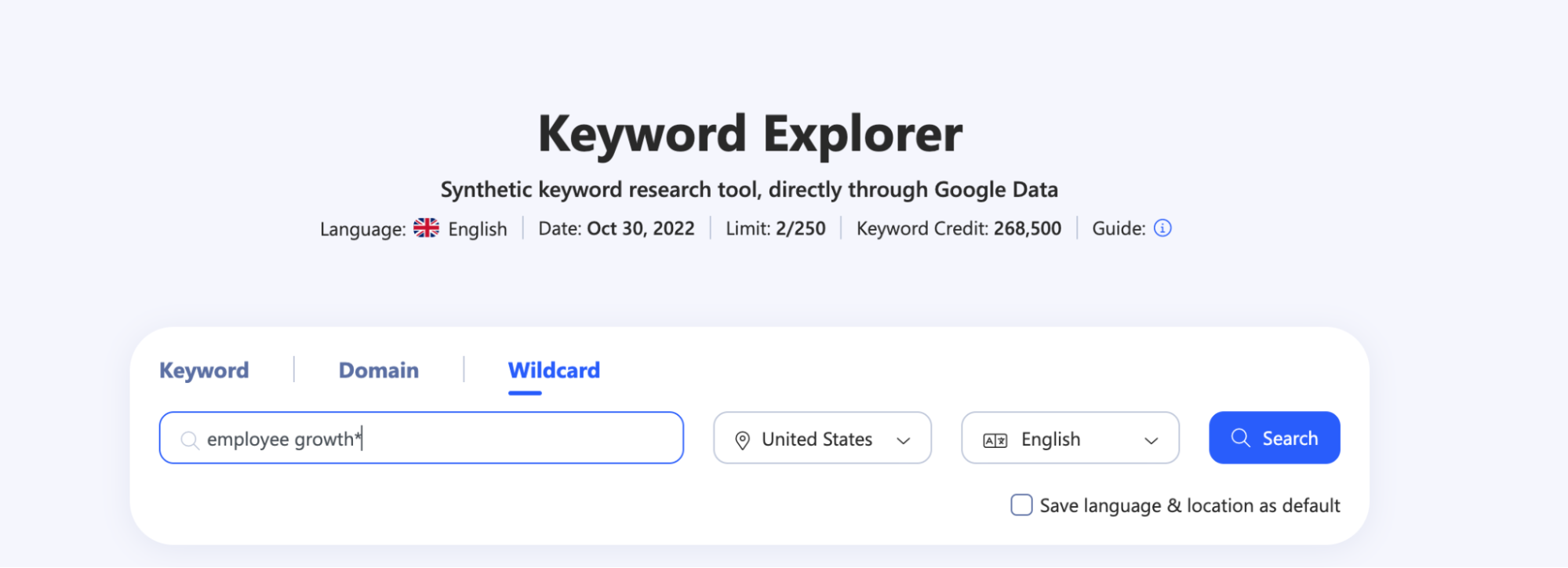
And sift through the results to find relevant ones. In the example below, I got, 653 potential keywords:
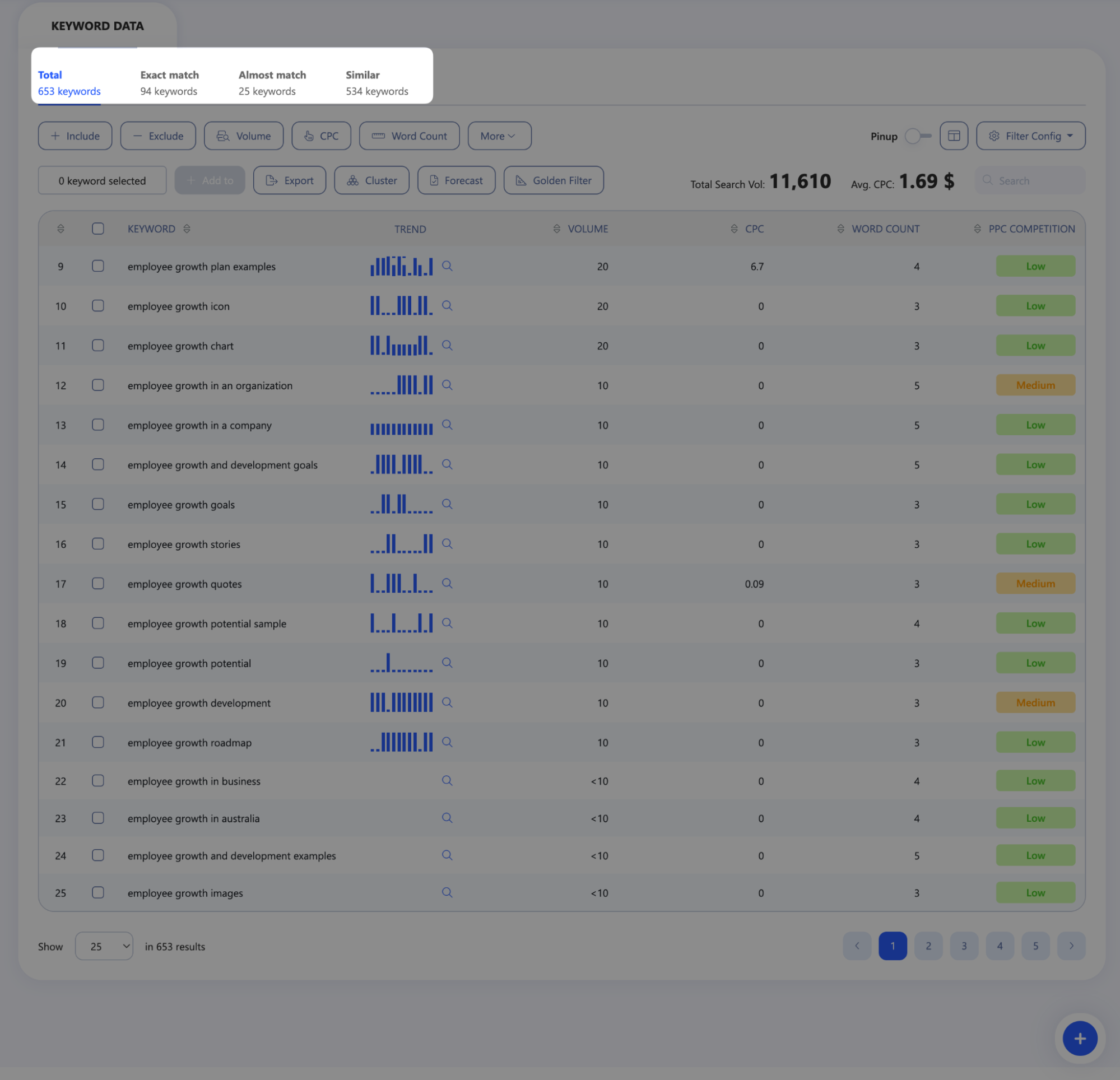
The most relevant will be targeted in the hopes of capturing demand. This feature is a favorite among our users:
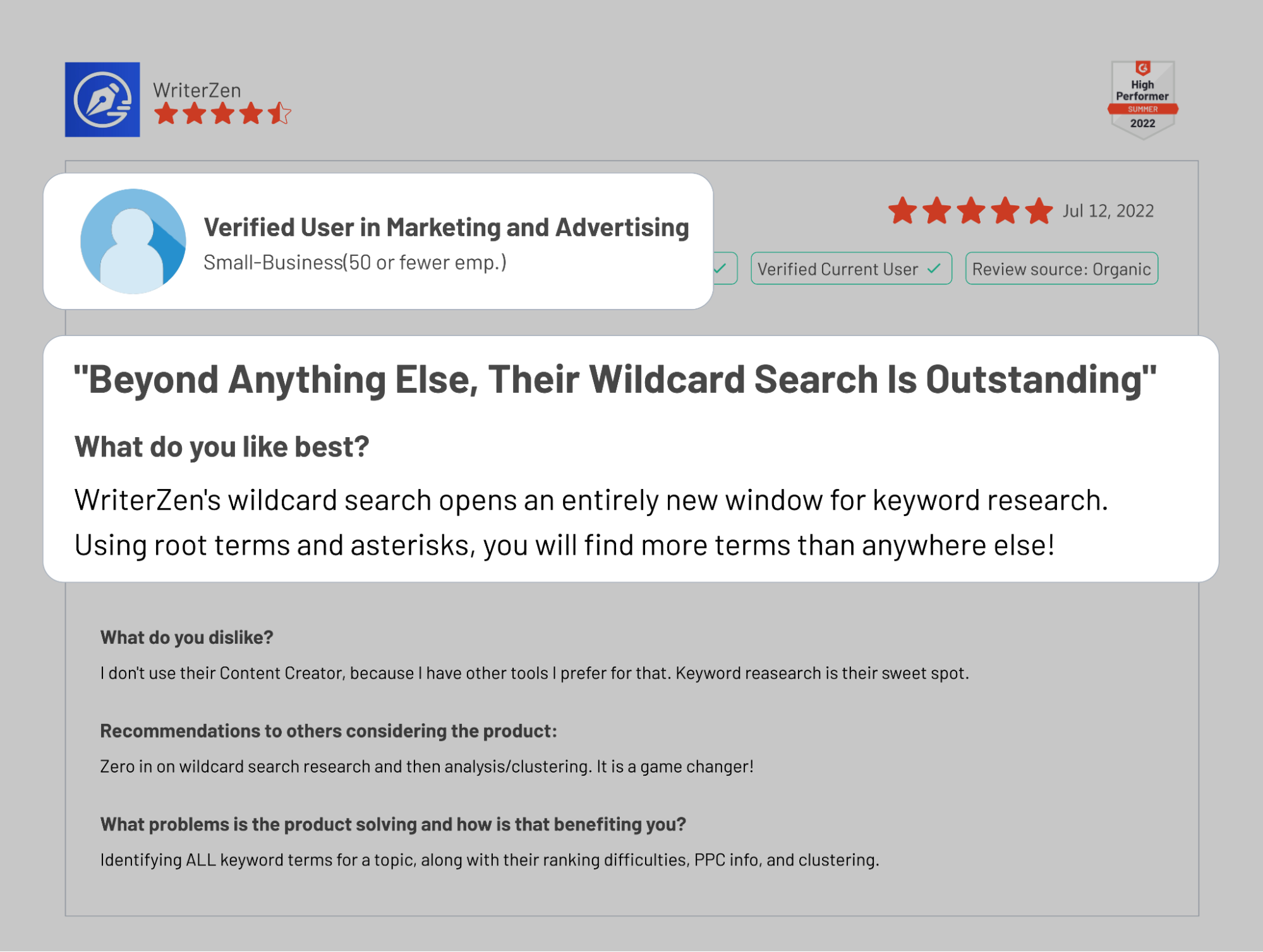
Capturing
After identifying these opportunity keywords, the next step is to optimize your content for search engines. This will ensure your content is ranked and found by the intended audience.
You can optimize for the target keywords without keyword stuffing. The marketing software scores you, and reveals opportunities to boost the optimization:
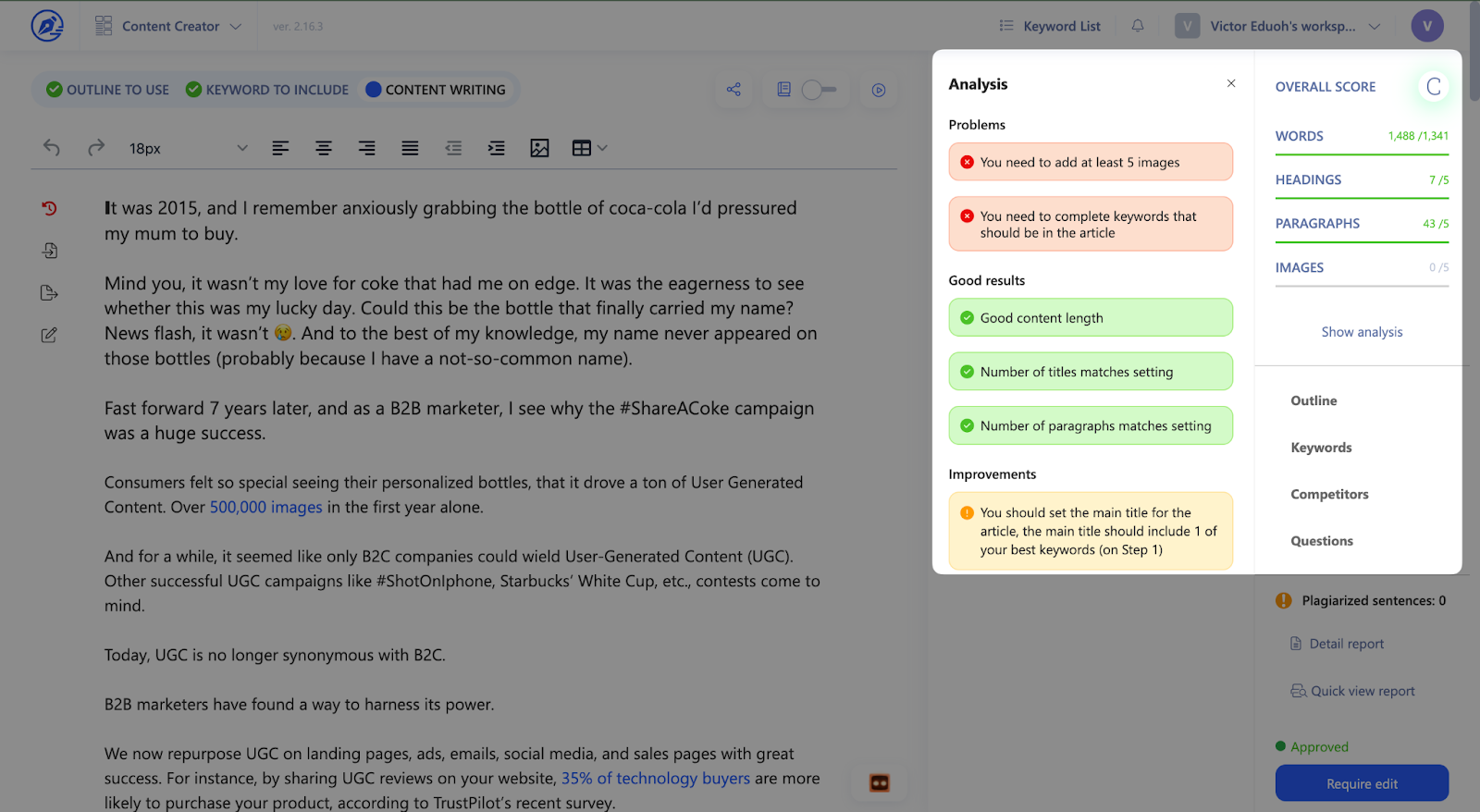
Final Thoughts
Sales is the backbone of every company. Without sales and revenue, a company will cease to exist. And this is why brand monitoring is important. It’ll help you discover what people are saying and detect opportunities to boost revenue.
To answer the question in the title, search engines and social media both have their place in demand capturing. It isn’t an either/or situation.
This makes social & SEO monitoring important. Utilize them effectively to increase brand growth.


